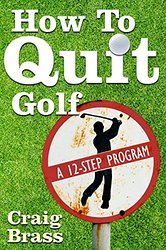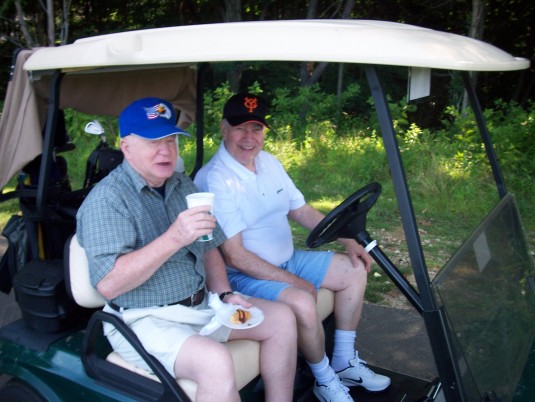
Without question, golf can be a frustrating sport with very little enjoyment. After all, there is a fair-amount of athletic ability involved. There’s also a fair-amount of mental focus involved too. And on top of that, there is very little margin for error.
Those of us who don’t golf for a living know this all too well. You step-up to the par-4 1st looking for a good start to your round. You also hope not to embarrass yourself in front of the starter and two foursomes waiting behind you. In this moment, you not only have to execute the proper athletic swing, but also clear your mind of any negative thoughts.
For many of us weekend hacks, it’s pure luck our ball lands in-bounds, let alone in the fairway. Heck, some of us will settle for just hitting it past the ladies tees (after all, there is no greater shame than not hitting past the tee box in front of you).
But let’s say you do clear your mind, execute a solid swing and end up roping one straight down the middle. Do you know what happens next? Of course you do. You promptly flub your approach, shank your chip and 3-putt your way to a double bogey 6. This my friends, is average hack golf in a nutshell.
So what can we weekend golfers do about it? Well, we can take a lesson; spend more time on the range; even buy new equipment or try out the latest swing gadget or gizmo. All solid ideas that may actually help pare-down those bulging handicaps we drag around with us.
But all of the aforementioned things take time, effort and money. I don’t know about you, but I have a job, kids and a wife that are all vying for my time, effort and money already. For most of us, golf is what we do in our spare time and on a spare dime.
That being said, how wonderfully obvious is our predicament then? The vast majority of us out on the course have carefully found an elusive window on our calendar. We’ve prepped our significant other and set the expectation we’ll be out for at least 4 or 5 hours. We have withdrawn the greens fees (plus money for a couple beers in the 19th) from our own personal savings account. We’ve done all this to just have some fun. But then expect to play like a pro (or even just a decent golfer)? That’s a bit preposterous, wouldn’t you say?
And now knowing this makes it seem even more ridiculous that we’re actually out there cussing and throwing clubs, doesn’t it? I mean, what sort of masochists are we weekend golfers anyway?
We should be enjoying golf to its fullest, regardless of how we play. Not getting frustrated that we didn’t hit a green in regulation. And therein lies our tip for today. It’s perhaps the most cost-effective and time-conscious thing you can do to enjoy yourself more out on the links.
It is to simply forget about your scorecard.
Now I said this would be cost-effective and time-conscious. I didn’t say it would be easy. But if you try, it can be a game-changer out there.
Play a few rounds without keeping score (no keeping score in your head either). Set-out that day to play simply to have fun. Don’t bet on your round. Just go and enjoy being outdoors on a beautiful day with good friends playing the game you love. Appreciate the exercise; take-in the scenery; embrace the camaraderie. Bad shots will still happen, but that’s normal – after all, you’re a recreational golfer, not a scratch golfer.
Simply relax and enjoy.
Now while it’s quite possible this no-care attitude will actually help you shave a few strokes off your game, that’s not the point. The point is just getting out and playing golf is always secondary to your score. And until you quit your day job to dedicate 6-hours-a-day on the range, just being out on the course will be all that really matters.
Golf is not our job. It’s our hobby; our passion; our release. It’s why we set-aside those few precious hours to play once a week (if we’re lucky). It’s why we have our own personal savings accounts in the first place.
If we’ve said it once, we’ve said it 1,000 times: Golf is a game; you should have fun playing it. Write that phrase under the brim of your cap; down the shaft of your putter; where ever it takes to remember why you play.
And finally, once we’ve learned that enjoying ourselves is all that really matters for weekend hacks like us, our scorecards can become relevant again. And hopefully by then, writing down that double-bogey – while still disappointing – won’t be nearly as devastating as it used to be.








